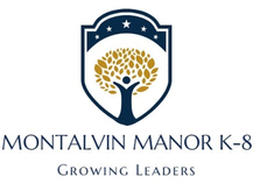Here are a few pointers gleaned from PBIS and Responsive Classroom on effective and positive reinforcement:
- Name concrete, specific behaviors - General praise like “good job” or vague feedback like “be good” can be confusing to students. Precise praise lets students know exactly what they are doing correctly and encourages them to keep doing it. For instance, instead of saying “You’re such a good writer!” try, “You’re writing is filled with such colorful details, I can tell you put a lot of thought and effort into it!”
- Use the 4:1 ratio - A study from Vanderbilt University recommends about a 4:1 ratio of positive reinforcement to redirection. They found that “When used effectively in the classroom, it can increase the social and academic performance of students, as well as improve classroom climate.” This means that the more often teachers notice the good in students, the more good students will do!
- Use a warm, professional tone - This takes some effort and practice on the part of the teacher. Instead of using sarcasm, baby talk, or overly gushy language, be warm & direct. Smile and and give your praise authentically or be firm, without judgement when redirecting misbehavior. For instance, “Should I really still be telling a fourth grader to walk at THIS time of the school year?!” try, “Freeze, go back and walk please.”
- Praise progress - Some students may take longer to learn to meet expectations than others. When we notice and praise a student is making an effort to meet expectations and did something well, make sure to notice it! For instance, a student that continually struggles with shouting out may begin to call out an answer, but catches herself and raises her hand. After class, pull the student aside and privately reinforce this by saying, “I noticed you almost called out, but caught yourself and raised your hand. You’re getting better at waiting until an appropriate time to talk!”
One very concrete way we’ve seen this work at Montalvin is in our cafeteria. Students were struggling to meet expectations of keeping their hands to themselves, walking, keeping a low volume, cleaning up after themselves, eating their food appropriately, raising their hands to get out of their seats, etc. Throughout the year, the admin team and lunch supervisors tried a variety of interventions and consequences like assigned seating, more staff, reteaching and practicing, community service, loss of recess, etc.
It wasn’t until we brought Class Dojo, a positive behavior tracking app, into the lunch room that we began to see improvement. We also hung up posters and images of Montalvin students following expectations so students can see themselves doing what they should. Now, the lead lunch staff calls out positive behavior and give points generously for all the things they see going well. Other lunch staff circulate from table to table giving points when warranted and reminders when needed. The points are projected in real-time and tables silently cheer for each other when points are earned. Students work together toward earning points as a table for extra play time and, at the end of the year, the ability to participate in a much anticipated water balloon fight!
Vice Principal, Michael Small praises the new system, “Since we implemented Dojo, students have been way more motivated to follow our core values. We have to redirect students less and the cafeteria is a lot cleaner and more fun. It’s really been transformative!”



 RSS Feed
RSS Feed